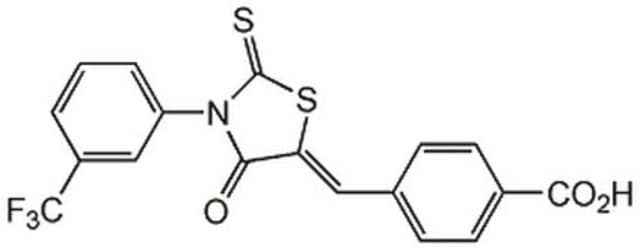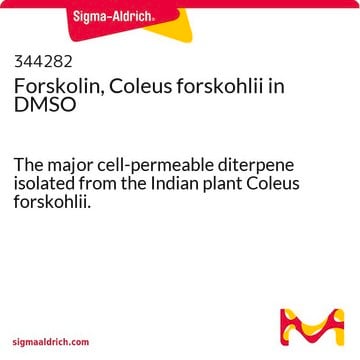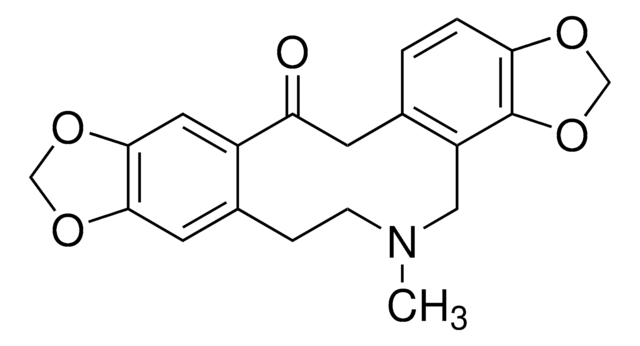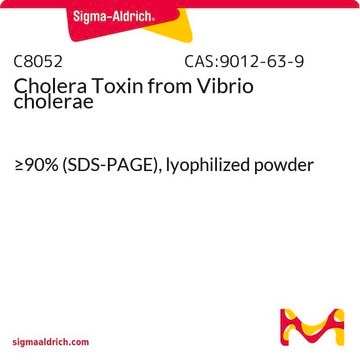C2992
CFTR Inhibitor-172
≥98% (HPLC), powder, CFTR inhibitor
Sinónimos:
5-[(4-Carboxyphenyl)methylene]-2-thioxo-3-[(3-trifluoromethyl)phenyl-4-thiazolidinone
About This Item
Productos recomendados
product name
CFTR(inh)-172, ≥98% (HPLC), powder
Nivel de calidad
Análisis
≥98% (HPLC)
formulario
powder
color
yellow
solubilidad
DMSO: ≥10 mg/mL
H2O: insoluble
temp. de almacenamiento
2-8°C
cadena SMILES
OC(=O)c1ccc(cc1)\C=C2\SC(=S)N(C2=O)c3cccc(c3)C(F)(F)F
InChI
1S/C18H10F3NO3S2/c19-18(20,21)12-2-1-3-13(9-12)22-15(23)14(27-17(22)26)8-10-4-6-11(7-5-10)16(24)25/h1-9H,(H,24,25)/b14-8+
Clave InChI
JIMHYXZZCWVCMI-RIYZIHGNSA-N
Aplicación
Acciones bioquímicas o fisiológicas
Producto relacionado
Código de clase de almacenamiento
11 - Combustible Solids
Clase de riesgo para el agua (WGK)
WGK 3
Equipo de protección personal
dust mask type N95 (US), Eyeshields, Faceshields, Gloves
Certificados de análisis (COA)
Busque Certificados de análisis (COA) introduciendo el número de lote del producto. Los números de lote se encuentran en la etiqueta del producto después de las palabras «Lot» o «Batch»
¿Ya tiene este producto?
Encuentre la documentación para los productos que ha comprado recientemente en la Biblioteca de documentos.
Los clientes también vieron
Nuestro equipo de científicos tiene experiencia en todas las áreas de investigación: Ciencias de la vida, Ciencia de los materiales, Síntesis química, Cromatografía, Analítica y muchas otras.
Póngase en contacto con el Servicio técnico










